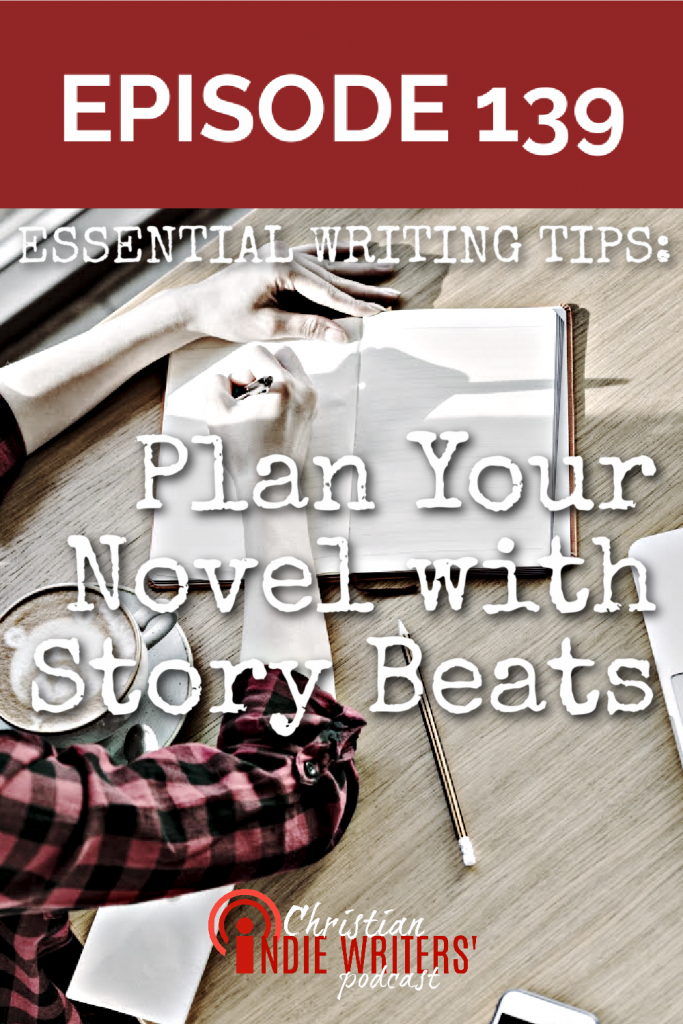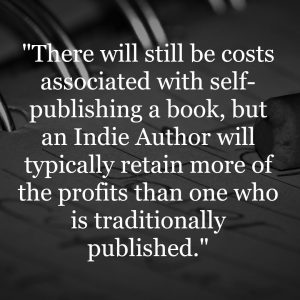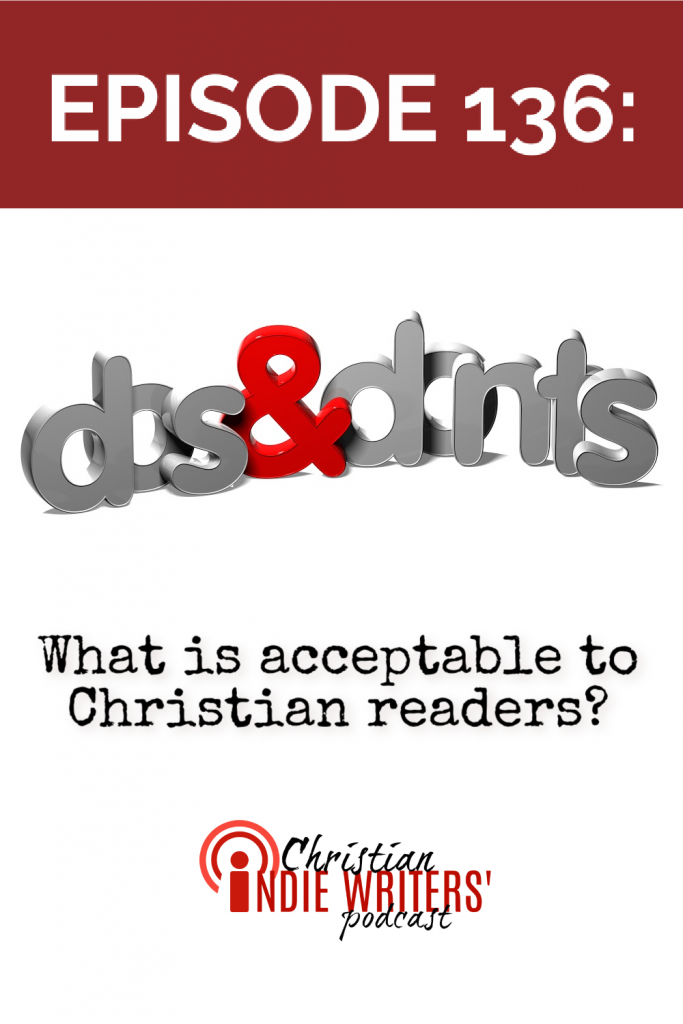Dear Indie,
We know what you’re thinking – “I don’t want to have my picture taken.”
It’s not just you, it’s me…and Tina, and Jen, and Rhonda.
[Read more…] about Episode 142: Book Marketing Tips: How to Take a Better HeadshotDear Indie,
We know what you’re thinking – “I don’t want to have my picture taken.”
It’s not just you, it’s me…and Tina, and Jen, and Rhonda.
[Read more…] about Episode 142: Book Marketing Tips: How to Take a Better HeadshotDear Indies,
It’s summertime in Florida, which means lots of rain and green things growing! The other hosts report beautiful weather in Michigan, and I know they’re right, as we were blessed to gather for a time of fun and fellowship there last month!
[Read more…] about Episode 141: The Writers’ Life: Tips for Writing All Summer LongDear Christian Indies,
Of late, we’ve been focusing quite a bit on the “after” bit of the writing process – a natural fit for us as three of the four of us have quite recently published. Now that we are all in the crafting phase of writing, the ladies and I are eager to get back to basics and begin delivering some essential writing tips to you, our awesome audience!
First up is plotting – we know it takes its various forms, but for our purposes, we’re talking “beats.” That’s right, I said, “beats” – just like you would hear in music. Folks who write to beats understand that, as with music, storytelling follows certain patterns that are universally considered pleasant to the human ear. Learning about plotting is a key component to understanding what makes a story “tick,” and by hitting all the “beats,” you can be sure your plot will be a true masterpiece.
As we have an expert on the subject as a co-host, we are going to explore the notion of plotting using “beats” and “beat sheets” on this week’s episode! That’s right, Rhonda Hagerman is one half of the awesome team that is the writer DD Bouman, who brought us the amazing, “Plot Your Novel: With This Workbook.”
So, whether you’re a plotter already, or a pantser challenging us to “just try and convince me to plot my novel,” you are sure to love this episode, full of the information and shenanigans you’ve come to expect from the Christian Indie Writers!
See you there,
Jamie

Hey Christian Indies,
When Christina Cattane set forth to choose a narrator for her number 1 bestselling book Lost in the Land of the Midnight Sun, she was determined to get a voice as authentic to her narrator voice as possible. She didn’t think her odds were great – there were many dialects represented in the audiobook world, but not too many who claimed to read with an authentic Alaskan dialect.
[Read more…] about Episode 138: Self-Publishing Tips: How to Choose a Narrator for Your Audiobook
Jenifer Carll-Tong is the best-selling author of historical Christian romances and co-host of the Christian Indie Writers’ Podcast.

If you have written a book, congratulations are in order! Of the 81% of people who want to write a book, you are one of the rare few who have actually done it! I sincerely hope you have adequately celebrated your personal dedication and commitment to this massive goal!
I remember finishing my first novel-length manuscript. It was a project I undertook as a part of National Novel Writing Month (NaNoWriMo). Even as I hit “enter” on the word count validator (any 50k manuscript counts as a “win” during NaNoWriMo), and the “Winners Circle” bragging rights badges popped up to reward my hard work, my brain was already nagging me to “get my story out there.” The first question I considered to that end was, “should I self-publish this book?”
You will likely have the same burning desire to get your work into the hands of eager readers, and the same question – whether to self-publish, or to traditionally publish. This is a question only you, the author, can ultimately answer, but this article is here to help you sift through the mountains of information out there so that you can make an informed, yet expedient, decision. Of course, whether you go traditional or self-published, when entering into any business venture, you will want to do your due diligence, including having attorneys or tax professionals involved, wherever necessary.
The first thing that lures new authors to the world of self-publishing is that literally anyone – provided they are given the correct information and access to the internet – can publish a book. Gone are the days of publishing industry “gatekeepers” cultivating stables of authors whose output becomes the only widely-read literature in the world. Now, people from all walks of life and of all skill levels can get their message “out there.”
This, of course, is why Independent Authors have a bad reputation; “anyone can publish” means just that – literally, anyone, including folks who choose not to have anyone proof-read the copy before it is sent to print, can publish a book. This means many works are sent to market with glaring errors a more polished book marketer (such as those employed at traditional publishing houses) would have corrected.
It also means the content of books available to the public can sometimes raise a brow. Genre tropes are often not followed in independently published fiction – either because Indie authors do not know about them, or because they have chosen to ignore them. This is something a traditional publishing house would never allow, because readers have been conditioned – arguably, by the industry itself – to anticipate a particular “formula” in the plotlines, and readers can feel a level of disappointment when this expectation is not fully met. When you self-publish a book, you are not bound to the genre restrictions that a publishing house would be beholden to, as your readers will be craving your content, specifically, not just a “trope” or a “formulated” story/plotline.
And it’s not just verbal boundaries which are being tested by these Indies. The big self-pub retailers still don’t allow pornography, but now more than ever the envelope of what is “societally acceptable” to audiences is being pushed in larger than ever ways. With the censorship of the gatekeepers now removed, books are available which are increasingly violent, vulgar, and “steamy,” and more skin than ever being shown on covers across the world.
Fortunately, readers have begun to adapt to this new publishing landscape. It seems none of these would-be roadblocks are a concern whilst contrasted with the copious variety suddenly afforded the reader, who can now find something to satisfy even the most peculiar of his peccadillos. Sure, there are plenty of unsavory options about, but it is easy enough to sort through the “noise” of books which are too sexual or violent to find the “gems” among the self-published. Also, more than ever I am told, “no one cares anymore” about a few minor errors in proper punctuation or grammar. These mistakes seem to be expected, in fact, these days – even in traditionally published novels.
The biggest reason Indies would self-publish a book is the control of said book stays in the author’s hands. There are so many rights (and responsibilities!) you relinquish when you sign on with a publishing house that a treatment of them all would be too great for the scope of this article. I shall, therefore, focus on three primary areas where the author ought to retain control when self-publishing a book: aesthetics, marketing, and financial.
Your book’s cover is going to be the number one thing to sell your book. That is why some Indies want to keep control over this all-important decision. Of course, many smaller publishing houses work hard to ensure the author is happy with the cover design, but, as a rule, when traditionally published, the “final say” on cover design rests with the publisher, not the author. This goes the same for any marketing or promotional materials – the publisher will have the final say, which leads me to my second point of author control:
Not only is the “image” of your book out of your hands when you traditionally publish vs self-publish a book, but your books actual “sale-ability” is, as well. In a traditional publishing environment, your book will compete with the house’s lead author for the season, meaning your book will only get a small percentage of the firm’s available resources allocated for the marketing of your book. If your book does not perform well, the publisher may not continue to be market it after the initial “launch” (release). Contrast this to the power of the Indie marketing budget, which is as little or as much capital as you can raise and are willing to invest. Which handily brings me to my third and final point of author control:

Everyone who has ever dreamed of writing is familiar with the coveted “book deal,” but the terms of these deals may not afford you the “rich and famous” lifestyle you might have imagined. There will certainly be out-of-pocket costs associated with self-publishing a book, but an Indie Author will typically retain more of the profits than one who is traditionally published, making up the difference.
Your book will sell for more or less money depending on several factors. One advantage of the traditional publishing houses is that they have fancy metrics to determine how and when to raise and lower prices, put books on sale, etc., but, as I described in point #2, your publishing house will be doing most of this fancy footwork for their “lead authors,” not necessarily for you or your book. Contrast this with the power of the Indie Author to change the price of his book at will. As an Indie Author, you will have total control over when to raise or lower your book prices, unlike a traditionally signed author.
Perhaps this article has opened your eyes to all the work that is involved with getting a book to market. You may decide, after reading this article and others like it, that self-publishing is too much of a commitment of your time and energy – too much of a learning curve for someone with your aptitude and talents. Only you know how much work and money you are willing to invest in your new book writing career. However, I would like to point out that there is another way forward.
Hybrid publishing is when you take advantage of all self-publishing has to offer, but “piggy-back” on the infrastructure put into place by the traditional publishing houses. It works sort of like an “a la carte” menu at a restaurant – you involve yourself with industry professionals only to the degree which you are willing to sacrifice that particular area of control.
You can hire a freelancer to do your marketing only, for example. Or, you can select a small publishing house to work with – perhaps one who has made arrangements with you for a cover approval process that allows you to feel more in control of that choice. In fact, hybrid publishing gives authors the ultimate in control, while retaining as many of the authors rights as possible (again, always consult a professional about legal or financial matters).
There are many factors to consider when determining whether or not to self-publish a book. Ultimately, you will likely end up with some sort of hybrid option, unless you have the time, patience, and financial resources to put into learning all of the different programs and requirements of managing a career as a completely independently self-published author.
Unfortunately, there are many unscrupulous businesses out there posing as “self-publishing houses for new authors,” who are really only trying to prey on author dreams. It is therefore your responsibility to thoroughly vet any company you do business with.
Whatever decision you make, be sure to tune in to The Christian Indie Writers’ Podcast every week. The three other hosts, myself, and our friendly group of live chatters will be sure to encourage and support you along your journey to publication, and beyond!
Hey, Christian Indies!
This week our essential writing tips are all aural, Indie; We’re discussing audiobooks and how to get them to market!
We know It is quite an effort to learn all the “ins and outs” of getting your physical and eBook formats up for sale on Amazon, and the idea of making an audiobook version of your work may seem a bit overwhelming, at first. However, this is an exciting opportunity to reach a whole new audience – people who may prefer audio, or those who have disabilities requiring them to listen rather than read.
[Read more…] about Episode 137: Self Publishing Tips: Is Audible the only choice for your Audiobook?Dear Indie,
We’ve talked in the past about the challenges of writing about your faith, but there is more to pleasing a Christian reading audience than writing specifically within the Christian genre. In fact, there are a whole host of genres wherein a Christian can find readership. Thus, the dilemma – how much is “too” much of the “world” to sprinkle into your writing?
We’re going to take on this meaty subject. You won’t want to miss it.
See you there,
-Jamie


Jenifer Carll-Tong is the best-selling author of historical Christian romances and co-host of the Christian Indie Writers’ Podcast.
Dear Christian Indie,
This week, we have a tip for new authors; “spend some time self-editing.”
Why? You might ask.
Well, dear Indie, there is an old saying that goes, “great books are not written, they are edited.” Even more recently, best selling author Neil Gaiman has advised, “write down everything that happens in the story, and then in your second draft make it look like you knew what you were doing all along.”
[Read more…] about Episode 135: Essential Writing Tips: Our Top 10 Tips for Self-EditingHi there, Indie!
“Write what you know.”
What more frustrating advice could anyone give young Jamie? After all, I was only a kid, and painfully aware that I didn’t really know much of anything!
Of course, with years and wisdom I was able to better process and utilize the sentiments of this communication and, in general, I feel the advice is wise. However, let’s say you want to write what you know, and you imagine an engaging tale about someone born in a region of the country (or world!) you have never visited? Or, imagine trying to write fanfic about Tina’s character, having never been to Alaska!
[Read more…] about Episode 134: Essential Writing Tips: Research Trips to Enhance Your WritingHey Christian Indies,
We’re kicking off a new series this week entitled, “Essential Writing Tips.” With this series, we hope to really dig into the “first things first” elements of writing. This week, we’re starting with getting to know your characters.
You might wonder, “how am I supposed to get to know an imaginary person?” or, “why would you bother to do so?”
In response, I offer this challenge; think about your favorite character from a book. Now, imagine you learn the author is planning to kill that person off in the next novel.
[Read more…] about Episode 133: Essential Writing Tips: Get to Know Your Characters
Jenifer Carll-Tong is the best-selling author of historical Christian romances and co-host of the Christian Indie Writers’ Podcast.
